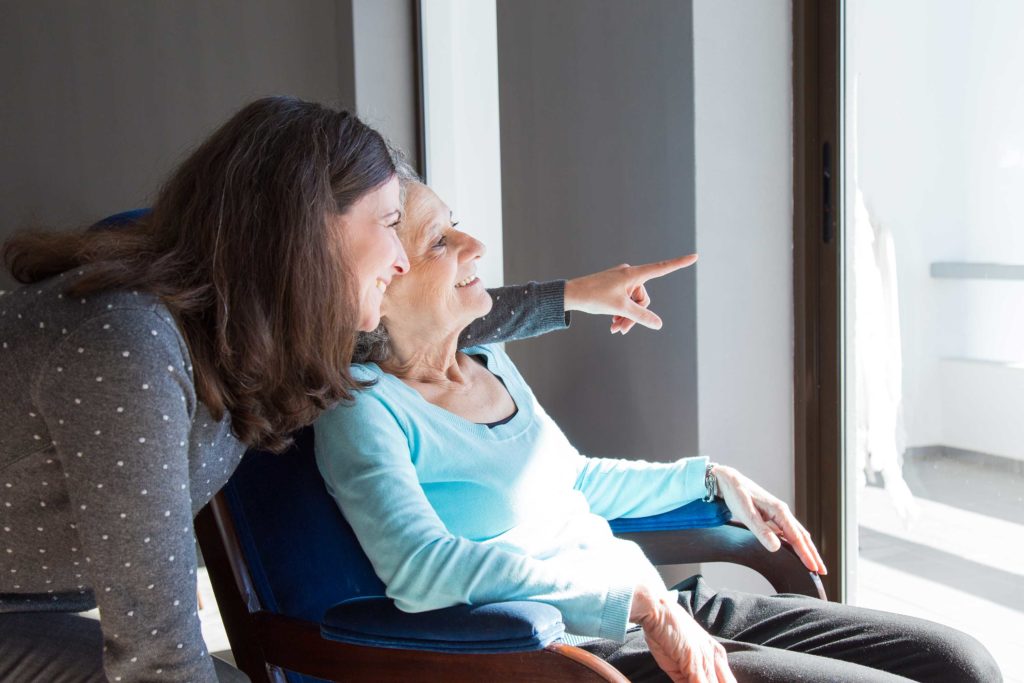5 Ways to Help Your Loved One Maintain Their Independence at Home
As our parents and grandparents age, it is important to create an environment that nurtures their independence for longer. Fortunately, there are many ways to do this and with our 5 ways to help your loved one maintain their independence at home, families can ensure they maintain a good quality of life for as long as possible.
1. Safety modifications
As our loved ones age, their safety becomes a top priority. It can be a difficult and emotional transition when they begin to require modifications to their home environment but with their help, they can continue to live comfortably in their homes. These changes can include anything from grab bars in the bathroom to ramps for wheelchair accessibility. With compassion and understanding, the following adjustments can be made to their homes and provide the peace of mind they deserve.
Speaking with an Occupational Therapist or carrying out research, can really help when deciding what kind of modifications to make that will benefit everyone involved. You can contact your healthcare professional about a referral for an Occupational Therapist.
2. Stay connected
As families of elderly loved ones, our primary goal is to ensure their well-being and quality of life. Staying connected is critical whether they need to contact a family member or have an emergency they need help with. This can be done through the following ways:
By building a support network with family, friends and care providers, they can feel empowered to take charge of their lives. It helps our loved ones maintain their independence at home and leads to healthy, happier lives.
Did You know?
All regions in England are projected to have a greater proportion of people aged 65 years and over by mid-2028.

3. Homecare services
Homecare services can be a great option for your loved one for many reasons. Working with experienced caregivers and through personalised support it can meet their unique needs and preferences. With the right care plan in place, it helps them to maintain their sense of self while also providing peace of mind for everyone involved.
At Care 24-7, we are committed to supporting independence, dignity and privacy and our staff are fully trained to provide care that promotes health, safety and wellbeing.
Some of our homecare services:
Personal homecare:
• Bathing, showering and meal preparation.
• Medication support or management.
Practical homecare:
• Respite for family carers.
• Collecting pension and paying bills.
You can trust and have confidence knowing your loved one is in safe hands with competent homecare that takes pride in delivering high quality care. Allowing your loved one to stay in the right place, their home.
4. Delivery services
Delivery services can bring the essentials right to their doorstep so they get what they need without having to leave the comfort and safety of their own home. With so many great delivery options available, there’s never been a better time to explore these services. Deliveries can come in the form of:
This allows them to feel like they are accomplishing what they need to do on their own and within their own homes. Not only does this help them feel more in control of their lives, but it puts everyone’s mind at ease, knowing that they have everything they need without having to navigate unfamiliar stores or public spaces
5. Promote physical activities
One of the most effective ways families can support their loved ones in staying independent is through regular exercise and by taking up hobbies. Engaging in physical activity can increase strength, improve balance and coordination, and boost energy levels. It can provide a sense of purpose and accomplishment, which can help minimise the risk of depression and dementia. Other health benefits include reducing the risk of chronic conditions such as heart disease and arthritis. Physical activities don’t have to be too strenuous and can come in the form of:
By encouraging elderly relatives to adopt a regular exercise routine, they will be better equipped to continue living independently and enjoying the things they love. Exercising at home is a convenient and effective solution. with the right guidance, support, and equipment.

Through the above 5 steps, from safety modifications to promoting physical activities, your loved one will be living an independent life, safe in the knowledge they are still being well cared for. With thoughtful proactive planning and the implementation of these tips, you can provide your loved one with a dignified home life as they age. At Care 24-7, our aim is to help you achieve this.











































